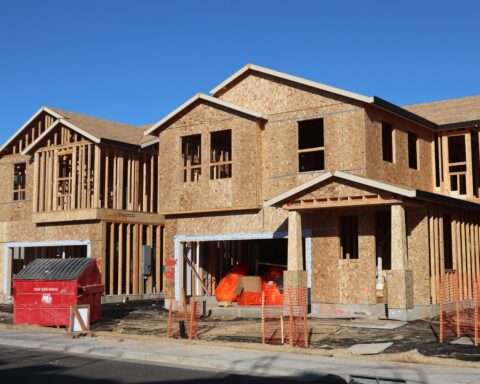New York City is taking steps to increase the housing supply for its residents. Local lawmakers have approved a sweeping $5 billion initiative that could create up to 80,000 new homes over the next 15 years. The “City of Yes for Housing Opportunity” proposal received approval from the City Council’s Subcommittee on Zoning and Franchises and Committee on Land Use.
The initiative represents the largest housing creation plan in recent city history. It arrives as New York grapples with a severe housing shortage, burdened by a rental vacancy rate of just 1.4 % and fewer than 1% of apartments listed under $1,500 monthly rent available for new tenants.
RELATED: New York City’s Fifth Avenue to receive pedestrian-focused makeover
New York is hardly alone in its housing struggles, but the crisis in the Big Apple is among the most extreme anywhere in the nation. Without new places for residents to live, cities risk slowing or stopping population growth and with it, their economic engine and cultural relevance. To combat the challenge, New York’s approach combines zoning changes with substantial capital investment, potentially offering a model for other municipalities facing similar hardships.
As outlined in a press release from 2023, the plan includes several key zoning reforms:
- Elimination of parking mandates for new housing developments, removing requirements that have added an estimated $67,500 per underground parking space in construction costs.
- Universal Affordability Preference policy allowing affordable housing to be about 20% larger than other types of housing.
- New “Main Streets” zoning allowing two to four stories of residential development above ground-floor commercial space in neighborhood corridors.
- Legalization of accessory dwelling units up to 800 square feet on one- and two-family properties.
- Updated regulations for converting empty office buildings into housing, with potential to create 20,000 additional homes over the next decade.
- Transit-oriented development allowing three to five-story apartment buildings near transit stops.
The $5 billion package includes multiple funding streams. The city is committing $1 billion for housing capital and $2 billion for infrastructure improvements, including sewer and flood infrastructure, street improvements, and open space projects. An additional $1 billion in expense funding over 10 years will support tenant protection, voucher assistance, anti-discrimination efforts, flood monitoring and neighborhood planning. The state is adding another $1 billion for housing capital over the next five years, subject to budget approval.
The initiative builds on existing housing investments. The city’s FY2025 Adopted Budget, approved in June, already included $2 billion in capital funds across FY25 and FY26 for the Department of Housing Preservation and Development and the Housing Authority’s capital budgets. In total, the city has recently committed $26 billion in housing capital in the current 10-year plan.
The investments have already translated to tangible progress on affordable housing development. Earlier this year, officials celebrated the groundbreaking of the Willets Point transformation, the largest 100% affordable housing project in 40 years.
With this latest approval from the City Council subcommittees, the proposal now moves forward in the legislative process. A full vote in the City Council on the measures will take place in December, and Bloomberg News has reported that the initiative is expected to pass.
Photo by David McBee













